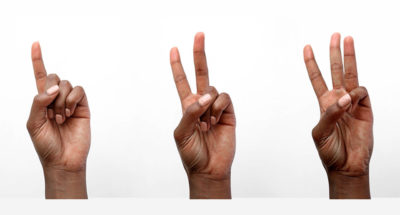
The SEL 3 Signature Practices
Guidelines (with examples) for using SEL practices to begin and end classes and meetings, and for engaging participants throughout.

Guidelines (with examples) for using SEL practices to begin and end classes and meetings, and for engaging participants throughout.
Students and staff will:
Before starting a meeting or class, take a moment to take a few deep breaths and check in with yourself about how you’re feeling. Then, call to mind something you’re looking forward to. Does this brief moment of taking care of yourself give you a more positive outlook towards the upcoming meeting or class?
Practices from the SEL 3 Signature Practices Playbook are one tool for fostering a supportive environment and promoting SEL. They intentionally and explicitly help build a habit of practices through which students and adults enhance their SEL skills. While not an SEL curriculum, these practices are one concrete example of a way to help people understand and practice the goals of an overall systemic SEL implementation plan.
Intentionally chosen strategies, activities, and protocols such as the ones found in the Playbook foster interactions that model SEL in action and help create an equitable experience. They establish a safe container for equity of voice, for truly seeing one another, and celebrating one another as our fullest selves.
When used consistently and thoughtfully, the Signature Practices help to create productive habits that shape an organizational culture. If used randomly or without authenticity, they are unlikely to make a positive, systemic impact.
For more information, click here.
Adapted from the CASEL SEL 3 Signature Practices Playbook, developed by the Collaborative for Academic, Social, and Emotional Learning (CASEL). CASEL, a nonprofit founded in 1994, defined social and emotional learning (SEL) more than two decades ago. Today, CASEL is a trusted source for knowledge about high-quality, evidence-based SEL and collaborates with leading experts and supports districts, schools, and states nationwide to drive research, guide practice, and inform policy.
How do the staff and/or students respond to these practices? Have they changed the tenor of your meetings or classroom? If so, in what way?
A study of reform efforts in 12 Chicago schools found that enabling positive, trusting relationships among staff members, including the leadership, were at the heart of school improvement.
In addition, positive relationships between teachers and students and between students themselves have been found to have tremendous benefits, including greater academic achievement and well-being, and increased prosocial (kind, helpful) behavior.
Trusting relationships among the adults and students in a school form the foundation of a safe and caring school climate. In order to build trust, research suggests several key facets must be present between people, such as a willingness to be vulnerable, holding benevolent intentions towards others, and being open with information.
SEL 3 Signature Practices can help cultivate these relationships by providing a supportive structure in which both adults and students can share honest thoughts, feelings, and ideas with each other.

Are you ready to build a kinder, happier school where everyone belongs? Join Greater Good Educators! Explore the science of well-being in a supportive community of educators from around the world. Registration is now open for the 2025-2026 school year!
Comments